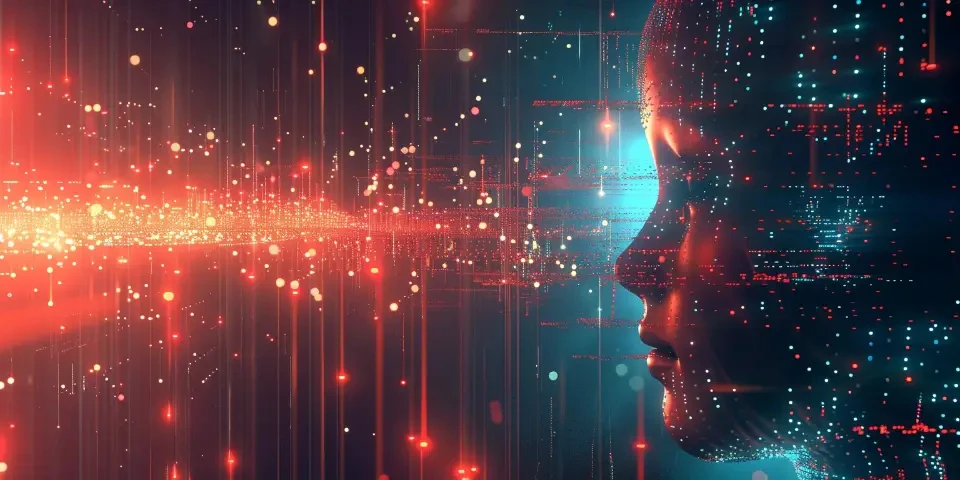AI in Education The Integration of Technology and Learning
Artificial Intelligence (AI) has revolutionized various industries, and education is no exception. With its ability to analyze vast amounts of data, adapt to individual learning needs, and provide personalized feedback, AI is transforming the way students learn and educators teach. This article will delve into the integration of AI technology in education, exploring its benefits, challenges, and future potential.
Benefits of AI in Education
1. Personalized Learning: AI algorithms can analyze students' learning patterns and preferences to create personalized learning experiences. This allows students to learn at their own pace, fill knowledge gaps, and focus on areas that require improvement. AI-powered adaptive learning platforms, such as Khan Academy and Duolingo, are highly effective in providing individualized instruction.

2. Intelligent Tutoring: AI-based virtual tutoring systems can provide personalized guidance and support to students. These systems incorporate natural language processing and machine learning to engage in interactive conversations, answer students' questions, and offer explanations. This personalized feedback enhances the learning experience, making it more effective and engaging.
3. Automated Grading: AI-powered tools, like Gradescope and Turnitin, can efficiently grade assignments, exams, and essays. These tools use machine learning algorithms to analyze patterns in students' responses and provide accurate and timely feedback. Automated grading saves valuable time for educators and enables them to provide more detailed feedback to students.
4. Enhanced Curriculum Design: AI algorithms can analyze vast amounts of educational data to identify knowledge gaps and improve curriculum design. By identifying areas where students struggle or excel, educators can modify their teaching strategies accordingly. This data-driven approach ensures that the curriculum is continuously optimized for maximum student learning.
Challenges and Limitations of AI in Education
While AI has tremendous potential in education, there are several challenges and limitations that need to be addressed:
1. Ethical Concerns: AI raises ethical questions regarding data privacy, security, and bias. It is crucial to ensure that students' personal information is protected and that AI algorithms do not perpetuate any biases or discrimination.
2. Teacher Training: Integrating AI into education requires proper training and upskilling of teachers. Educators need to be familiar with AI tools and understand how to effectively integrate them into their teaching practices. Adequate professional development programs must be in place to support teachers in harnessing the full potential of AI.
3. Overreliance on Technology: While AI can enhance learning experiences, it is essential to strike a balance between technology and human interaction. Overreliance on AI may hinder the development of crucial interpersonal skills and creative thinking. Educators must ensure that technology complements and enhances traditional teaching methods.
The Future of AI in Education
The integration of AI in education is still in its early stages, but it holds immense potential for the future. Here are some future possibilities:
1. Personal AI Assistants: Each student could have their own AI assistant that adapts to their learning style and provides personalized support.
2. Intelligent Content Generation: AI algorithms could generate customized learning materials based on individual student needs, making education more accessible and engaging.
3. Enhanced Collaboration: AI-powered collaboration tools could facilitate real-time collaboration among students, regardless of geographical location. This would enable global learning communities to collaborate and learn together.
Frequently Asked Questions
Q: Will AI replace teachers in the future?
A: While AI can automate certain tasks, such as grading and content delivery, teachers play a crucial role in cultivating critical thinking, emotional intelligence, and social skills. AI will augment teachers' capabilities rather than replace them.
Q: How will AI impact students' privacy?
A: It is essential to establish robust data privacy laws and regulations to protect students' personal information. Educational institutions must ensure that AI systems are secure and that student data is handled responsibly.
Q: Are AI-powered tutoring systems effective?
A: Studies have shown that AI-powered tutoring systems are highly effective in improving learning outcomes. These systems provide personalized support, immediate feedback, and adapt to students' learning needs.
References:
1. Johnson, M. (2020). Artificial Intelligence in Education: Promises and Implications for Teaching and Learning. Retrieved from https://www.edutopia.org/article/artificial-intelligence-education-promises-and-implications-teaching-and-learning
2. Khan Academy. (n.d.). Retrieved from https://www.khanacademy.org/
3. Gradescope. (n.d.). Retrieved from https://www.gradescope.com/
Explore your companion in WeMate